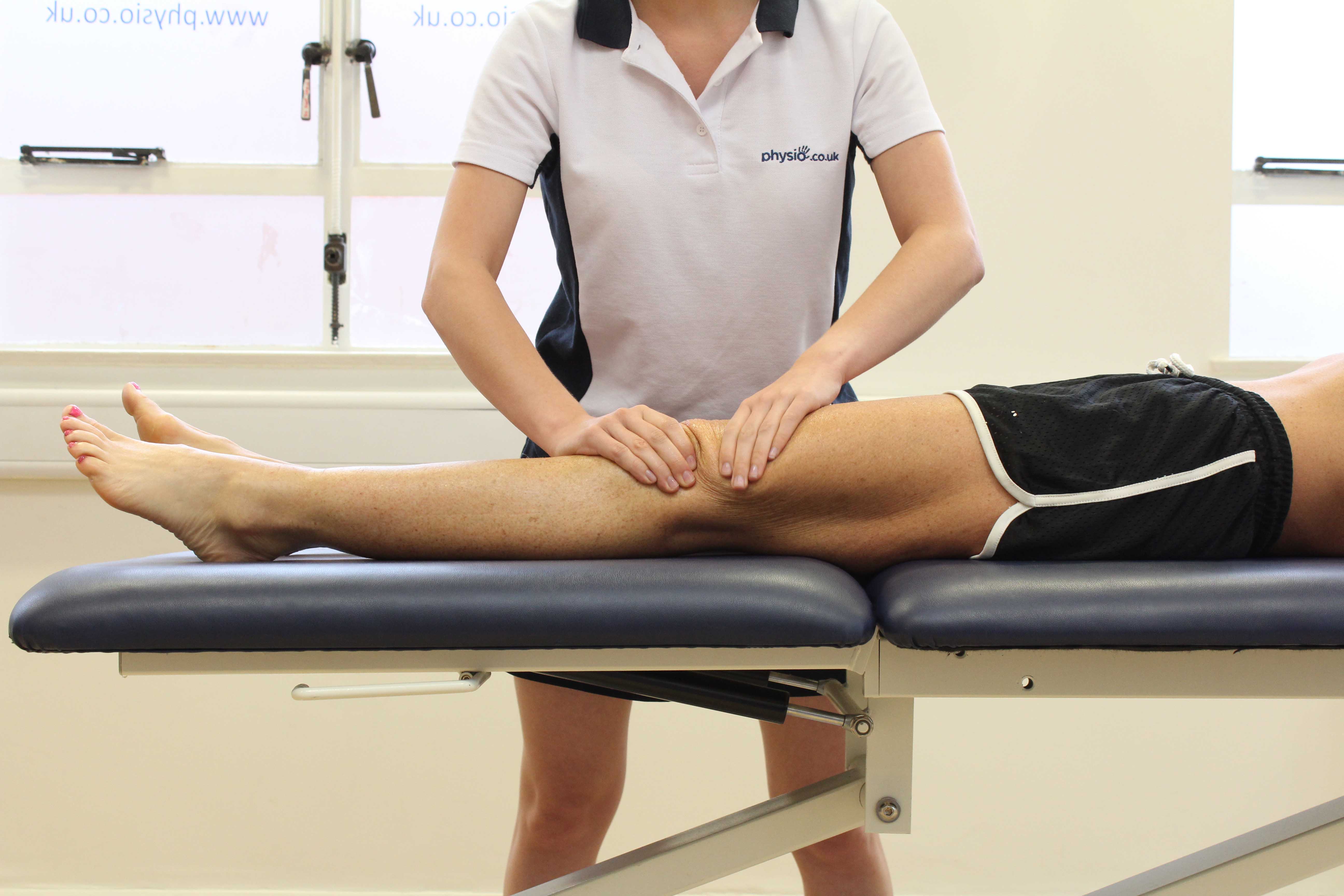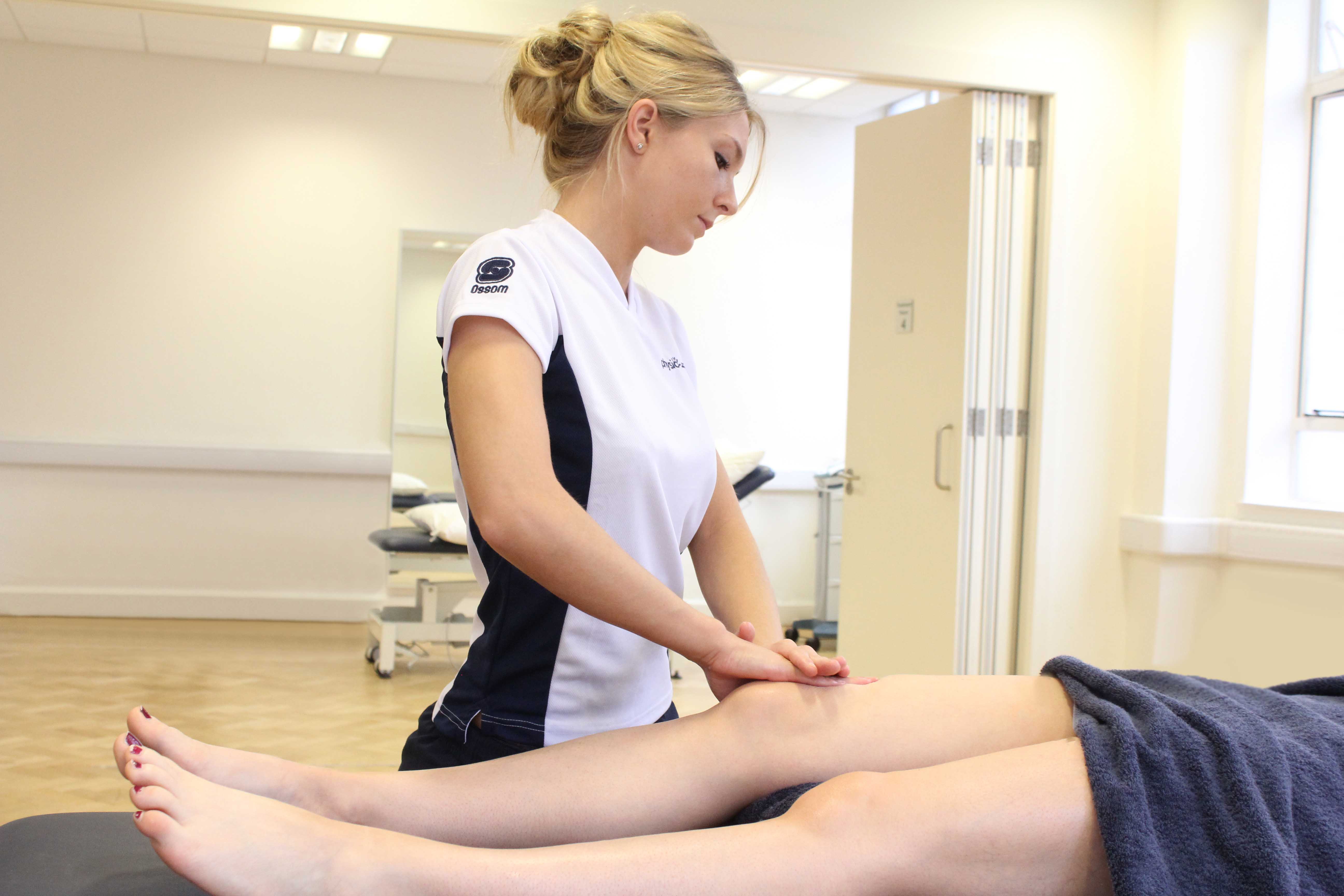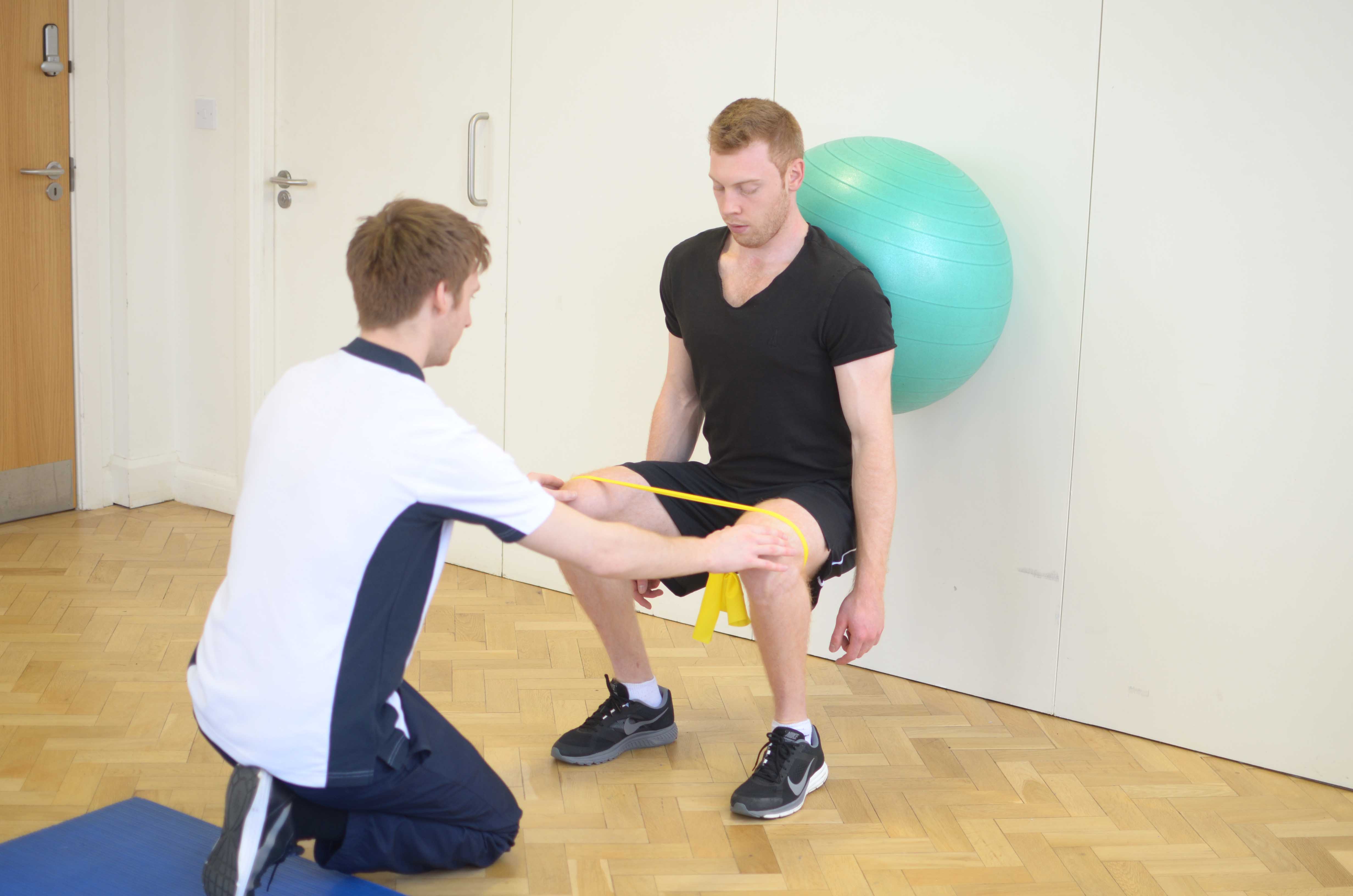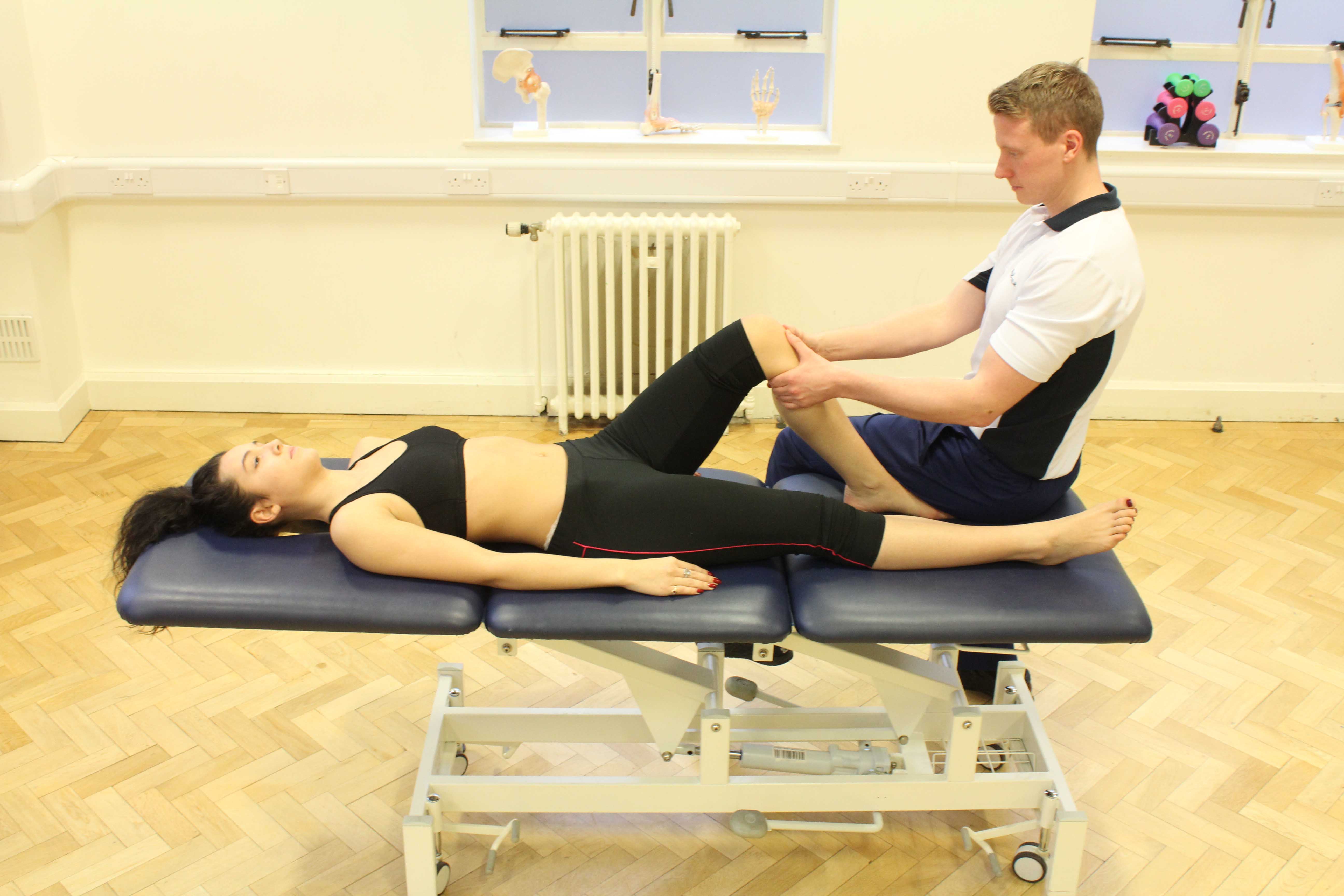Knee Osteotomy
A knee osteotomy is a surgical operation whereby a bone is cut to shorten, lengthen or change its alignment to increase the stability of the knee and reduce the effects of arthritis.
In patients with degenerative arthritis or osteoarthritis of the knee joint, deformities of the knee are often experienced. These deformities can either be bow legged or a knock kneed appearance.
These deformities are caused by the cartilage of the joint being worn down as arthritis develops. In some cases the damage can affect one side of the knee joint more than the other causing the body weight to be transmitted down onto the worn part giving the knee a deformed appearance. If the inside of the knee has been damaged or worn, then this will cause a bow legged appearance (varus deformity) and if the outside of the knee has been damaged or worn then this will result in a knocked knee appearance (valgus deformity).
The purpose of anosteotomy is to reposition the kneein order to unload the worn out part of the joint and place the weight on the healthier side. This allows the knee to glide more freely and carry weight evenlycausing it to function better.
A knee osteotomy involves the procedure where the surgeon cuts the bone and the re-orientates it. There are two types of osteotomy, a closing wedge or an opening wedge. A closing wedge is when a bone is removed to change the alignment of the bone and an opening wedge is where the bone is gapped open on one side to align the bone. The type of osteotomy depends on the type of deformity. Once the bone has been realigned, the surgeon will then use either screws or metal plates to hold the bones in their new position.
The ideal patient for a knee osteotomy is a young, active person who had arthritis limited to one side of the knee joint. Candidates for the surgery must have significant pain and disability and the ability to cooperate with a strict and length physiotherapy rehabilitation programme. Osteotomy is primarily used to delay a full knee replacement and can last for anywhere between 5 and 10 years.
 Above: Patella mobilisations performed by MSK Physiotherapist
Above: Patella mobilisations performed by MSK PhysiotherapistPreoperative physiotherapy
They key aim of physiotherapy prior to your knee osteotomy is to maintain strength in the muscles around your knee. Another main goal is to improve the range of movement in your knee joint. This will better prepare you for your surgery and also aid your recovery post osteotomy. It is also essential to strengthen muscles in your hip and ankle for to help support your knee.
Symptoms post osteotomy
After surgery you will experience pain and swelling in your knee which you will be given relief for. You will also suffer from stiffness and reduced function in your knee. You will be given a brace and be expected to use elbow crutches for up to 6 weeks. Driving will not be ill advised during this time.
 Above: Soft tissue massage of the muscle and connective tissues around the knee
Above: Soft tissue massage of the muscle and connective tissues around the kneePost operative physiotherapy
0-4 weeks
Physiotherapy rehabilitation with Physio.co.uk immediately after your osteotomy will involve protecting your knee from harmful forces, decrease pain and swelling, gradually improve range of motion and function in your knee. You will have to wear a protective knee brace during functional and weight bearing activities and also wear the brace during sleep for up to 4 weeks. You will not be able to weight bear for first 3 weeks and be able to partially weight bear after 4 weeks. To reduce initial swelling and pain, treatment using RICE will be given which includes rest, ice, compression and elevation of your knee.
 Above: Stability and strength training for the knee, supervised by a MSK Physiotherapist
Above: Stability and strength training for the knee, supervised by a MSK PhysiotherapistTo improve your range of movement in your knee during this time, Physio.co.uk will include exercises in your rehabilitation such as:
- Full passive knee range of movement exercises
- Patellar (knee cap) mobilisations
- Stretching muscles around your knee such as hamstrings and calf.
- Strengthening exercises for quadriceps
- Straight leg raises
- Strengthening exercises for hamstrings
- Strengthening exercises for muscles in and around hip and ankle
- Stationary bike when your range of movement allows.
4-8 weeks
Goals after the fourth week of your rehabilitation with Physio.co.uk will involve you gradually progressing to full weight bearing and regaining full range of movement in your knee. Goals will also include the continuation of improvements in the strengthening and range of motion exercises from previous weeks.
Your physiotherapy programme with Physio.co.uk at this stage will include:
- Progression of weight bearing as tolerated (full weight bearing without crutches by 8 weeks)
- Discontinue use of brace at 6-8 weeks
- Range of movement exercises
- Patellar mobilisations
- Stretching exercises for quadriceps, hamstrings and calf
- Strengthening exercises for quadriceps, hamstrings and calf (increased resistance)
- Proprioception training (balance)
- Gait re-education exercises
- Stationary bike as tolerated
- Hydrotherapy
- Some function specific exercises will now be included
 Above: Mobilisations of the knee joint by a MSK therapist
Above: Mobilisations of the knee joint by a MSK therapist8-12 weeks
During the 8th and 12th week after your osteotomy, your physiotherapy programme with Physio.co.uk will now include a continuation of exercises from previous weeks plus a progression of muscular strength and endurance exercises. The goals of your programme will now focus on exercises that are specific to your functional activities. Physiotherapy will include:
- Continuation of stretching and strengthening exercises for muscles in and around your knee
- Walking programme (gait re-education)
- Proprioception (single leg balance exercise)
- Static bicycle
- Hydrotherapy
4-6 months
By this time you should have full non painful range of movement in your knee. You should have sufficient strength, proprioception (balance) and muscle control. Additionally, you should not be experiencing any pain, inflammation or swelling at this point. Your physiotherapy programme will now involve:
- Continuation of strengthening and stretching exercises from previous weeks
- Hydrotherapy
- Static bicycle
- Agility training (changes in direction)
- Proprioception (balance)
- Sport specific activities
- Function specific activities
Success of your physiotherapy programme with Physio.co.uk will highly depend on your commitment to your rehabilitation and the severity of your initial condition.
Summary
Knee osteotomy is recommended if you have degeneration in your knee commonly due to arthritis. It is often done if you are active and younger than 60 to delay the need for a knee replacement. A knee osteotomy involves the cutting of either a bone in your knee to realign the joint. This will help ease degenerative symptoms and further delay the affects of arthritis in your knee. A personal physiotherapy programme with Physio.co.uk before and after your knee osteotomy is essential to ensure the return of the full function in your knee joint. This will help get you back doing whatever it is you love doing whether it is work, hobbies or everyday activities. Call Physio.co.uk now on 0330 088 7800 for more information or to book an appointment!

 0330 088 7800
0330 088 7800

































